Copyright ditions Grasset & Fasquelle, 2008
Originally published as Mon vasion by ditions Grasset & Fasquelle, Paris, in 2008
Translation copyright 2012 Nichole Gleisner
Production Editor: Yvonne E. Crdenas
All rights reserved. No part of this publication may be reproduced or transmitted in any form or by any means, electronic or mechanical, including photocopying, recording, or by any information storage and retrieval system, without written permission from Other Press LLC, except in the case of brief quotations in reviews for inclusion in a magazine, newspaper, or broadcast. For information write to Other Press LLC, 2 Park Avenue, 24th Floor, New York, NY 10016. Or visit our Web site: www.otherpress.com
The Library of Congress has cataloged the printed edition as follows:
Groult, Benote.
[Mon vasion. English]
My escape : an autobiography / by Benote Groult; translated by Nichole Gleisner.
p. cm.
eISBN: 978-1-59051-544-0
1. Groult, Benot. 2. Authors, French20th centuryBiography.
3. FeministsFranceBiography. I. Gleisner, Nichole. II. Title.
PQ2667.R6Z4613 2012
848 .91203dc23
[B] 2012018409
v3.1
To my lovely, utterly feminine, line of descendants
BLANDINE, LISON, AND CONSTANCE
my daughters
VIOLETTE, CLMENTINE, AND PAULINE
my granddaughters
AND ZLIE
my great-granddaughter
Contents
Prologue
 Young people today cant truly imagine the extraordinary course of history that belonged to women of the twentieth century.
Young people today cant truly imagine the extraordinary course of history that belonged to women of the twentieth century.
As someone born in 1920, who grew up well behaved in a Catholic institution and who reached adulthood without possessing the legal means of expressing an opinion about my countrys direction (I didnt have the right to vote until 1945, when I was twenty-five years old!), and who realized, around the age of forty, that I had lived a good part of my life without contraceptives or legal abortion (which is not to say, unfortunately, without abortions), without being able to attend the schools of my choice, or attain political power or the higher offices of government, and as someone who did not even possess parental authority over my own children, I know the feeling of being condemned to a never-ending series of obstacles.
At an age when its high time to write ones autobiography, I see my past life as a long march toward an autonomy that always seemed out of reach, and toward an independence that could no longer be limited by others but conquered, step by step, by going in the direction of my choosing.
With Story of an Escape in 1997, I had wanted to take stock of the feminist revolution that sought to transform the lives of women. I also wanted to shake up human relations, and to impact, little by little, men the world over, whether they liked it or not. Rather than my life story, this book was a self-examination, never completely finished since prison bars and fences have a maddening tendency to crop back up again, like bamboo.
I retold the stages of my second birth, which go back to Year Zero of Feminism, as the press called it at the time, to the day when the nascent MLF protested under the Arc de Triomphe in front of the Tomb of the Unknown Soldier, in homage to someone even more unknown than the soldier himself: his wife! That was August 28, 1970. I was already fifty years old and I still felt as if I were fresh off the boat, as if my position had been gained from on high in a world that, for all eternity, had belonged to men. I couldnt imagine that it would be so hard to break free from the straitjacket of tradition, from all these ties that ensnarl so tightly that you cant even make them out from your own flesh.
I discovered that freedom isnt just picked up naturally. Its something you have to learn, day after day, and very often painfully.
For this apprenticeship, I didnt need philosophy, or science, certainly not religious faith. I didnt need men either. They might bring me marvelous things but not the things I needed at this stage of my life. For these times, I needed other women, those models who had been carefully hidden from me during the course of my education. I finally discovered their existence and I realized that these women had all toiled for me, each in her way, according to her eraChristine de Pizan, Olympe de Gouges, George Sand, Flora Tristan, Pauline Roland, Jeanne Deroin, Hubertine Auclert, Marguerite Durand, Sverine, and so many othersso that we could finally shake up the traditional division into first and second sex Acting alone, against their loved ones and against society, these women made their choices in spite of the need for love and recognition that they carried in their hearts like anyone else, perhaps more than anyone else.
Is feminism anything but this transfusion of souls, moving from those who dared to act to those who accepted the rules of the game?
Today its fashionable to proclaim that misogyny doesnt exist anymore.
But where did patriarchy go?
In the words of Marie-Victoire Louis, the founder of the AVFT, its staring you in the face. Its invincible.
We could say the same exact thing about misogyny. I belong to a pivotal generation in which practically no woman dares to call herself a feminist, as if it were a shameful disease. To pride oneself on being antifeminist, however, remains an excellent calling card in most social circles and in this way our success is more easily tolerated. Even men appreciate our antifeminism; it lets them off the hook so they dont have to be macho because we give ourselves this dirty job.
Every time I see a capable or powerful woman appear on television, I know that she will soon announce that, naturally, she isnt a feminist. If we forgetfor just one moment eventhat her presence on television is the result of so many past battles for women and that her presence is by no means a spontaneous gesture from one of her masculine partners, we continue to discredit a cause that we should all be proud of.
In the same way, a self-proclaimed feminist book will never be considered a normal book, one which could possibly interest readers of both sexes. Instead the book is seen as some sort of missal reserved for a few old-fashioned devotees, basically a work of patronage. Some women flip through its pages, others will read the entire thing. But 90 percent of men, according to my personal experience, wont even crack it open. It doesnt cross their minds that a feminist book could, like any other book, be good or bad, well or poorly written, brilliant or horribly boring. Its, quite frankly, really galling: the word itself reflects their base thinking. At least husbands no longer discourage their wives from reading such a book, as if to protect them from a virus (which quietly runs its course, in spite of them).
From what I can tell, all of our battles have been too recent (some so late that I could not take advantage of them in my lifetime) and this allows me to forget that our war for independence is still not yet won. In fact this war is just beginning for hundreds of millions of my fellow creatures across the worlds continents. This is why I take measure of what each right, what each new step forward, means in all its precious, essential, fragile, and precarious ways.
Nevertheless I have benefited from a great stroke of fortunenamely that women are the ones who buy books and essays today. Without them, I would be left for nothing within the ranks of literature. Smoking kills, but so can feminism!


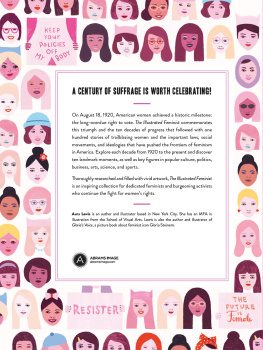
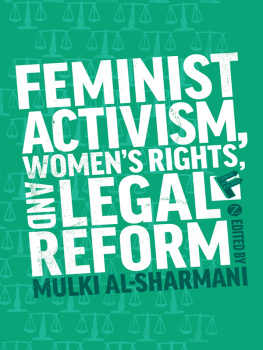
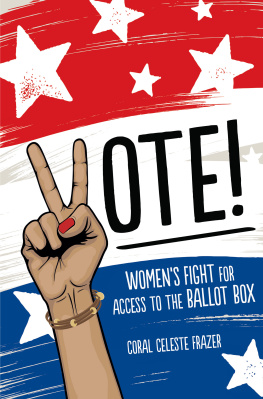
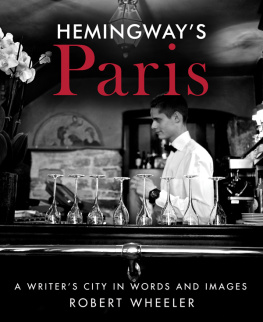
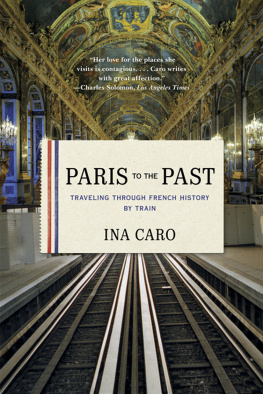
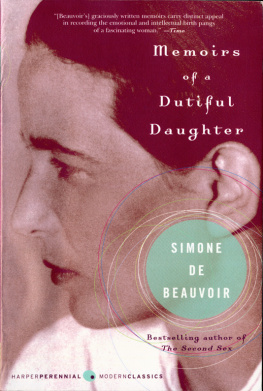
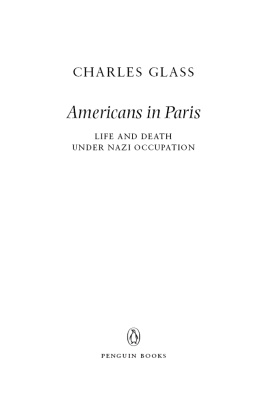
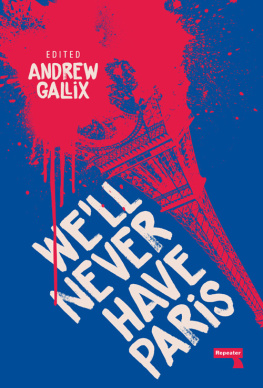
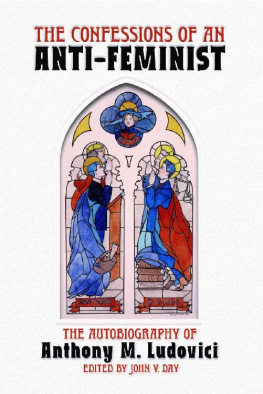
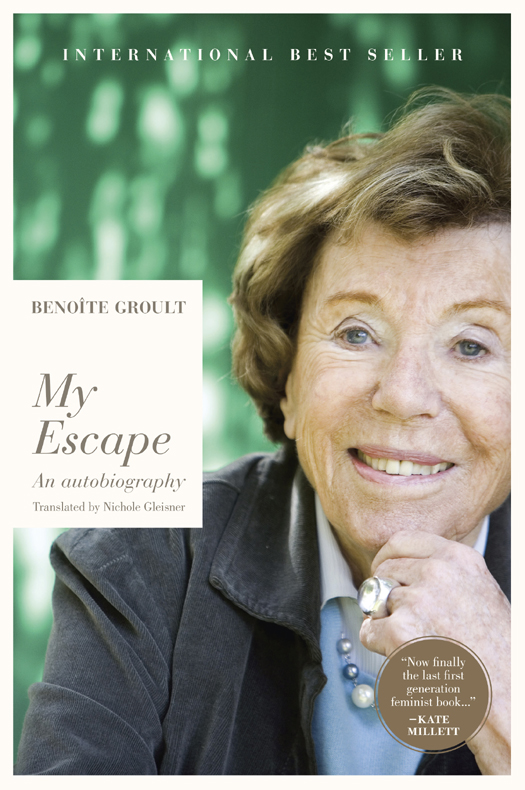
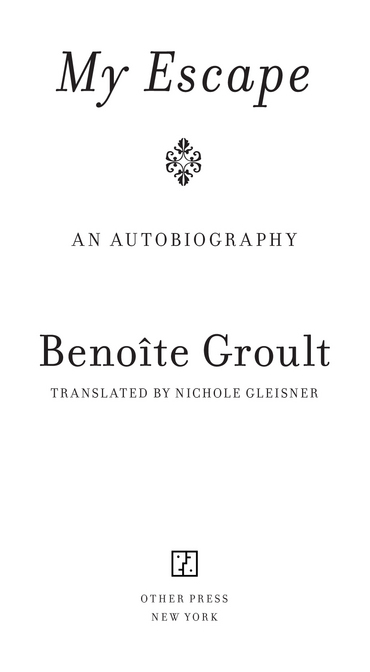
 Young people today cant truly imagine the extraordinary course of history that belonged to women of the twentieth century.
Young people today cant truly imagine the extraordinary course of history that belonged to women of the twentieth century.